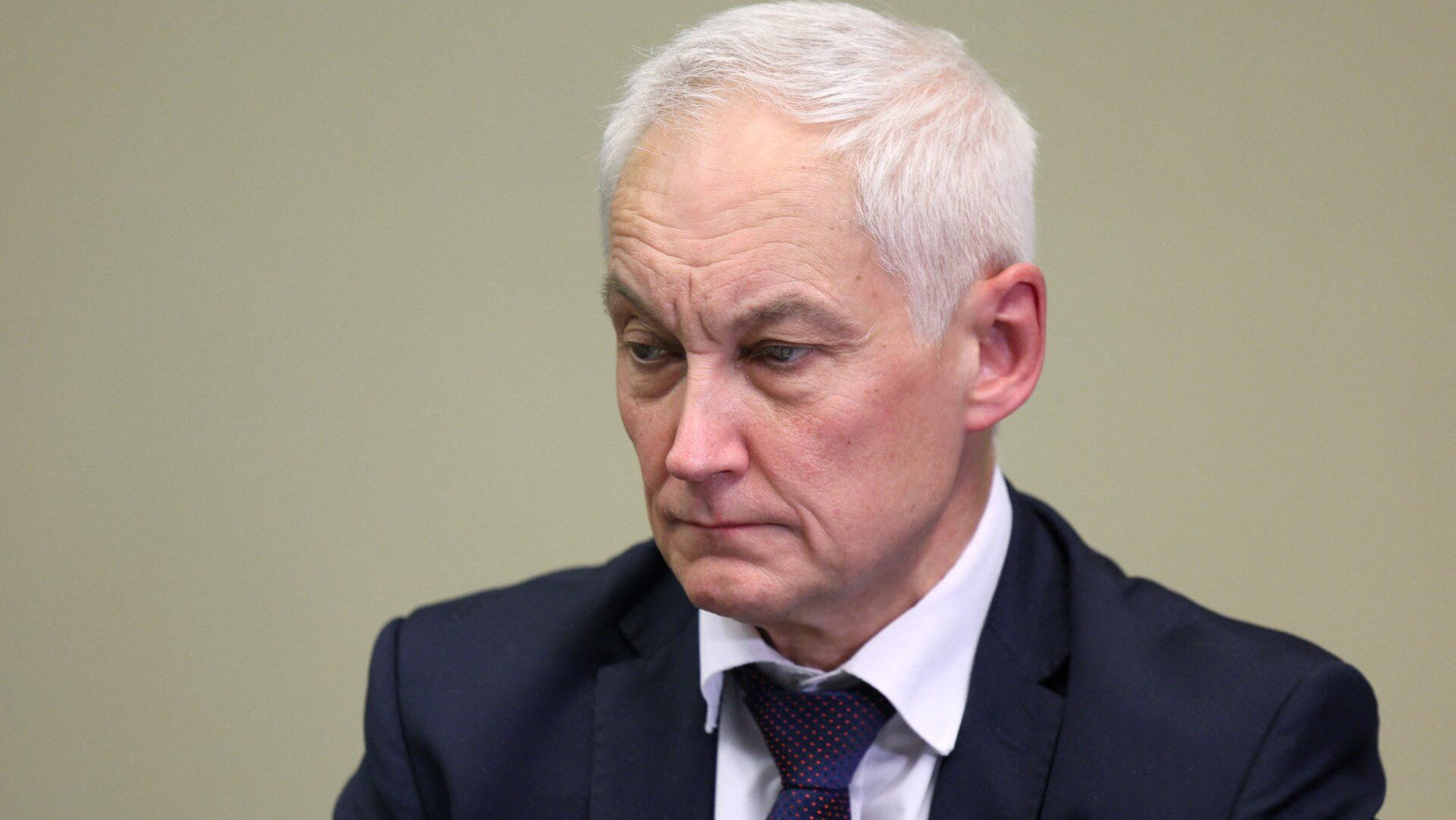
Andrei Belousov listens as Russia’s president chairs a meeting with members of Security Council, Russian government and law enforcement agencies in Moscow on October 30, 2023.
Photo: Gavriil GRIGOROV / POOL / AFP
Russian President Vladimir Putin is replacing long-time Defence Minister Sergei Shoigu with economist and former Deputy Prime Minister Andrei Belousov, whose task will be to put the whole economy on a war footing as Russia prepares for a drawn-out war with Ukraine.
The decision to make the change was announced on Sunday, May 12th, and reverberated all around the world as Sergei Shoigu has been one of Putin’s most trusted ministers, serving in this role for close to twelve years. Shoigu is officially being promoted, and will lead the Security Council, the president’s advisory body on national security affairs, but analysts see this as a demotion.
Sixty-eight-year-old Shoigu has been criticised for his handling of Ukraine’s invasion two years ago, with Russian troops failing to capture the capital Kyiv, and being forced out of other major cities during the first few months of the attack. His ministry was also rocked by a bribery scandal, with Shoigu’s deputy, Timur Ivanov, accused last month of taking kickbacks. His arrest was interpreted by some as a possible precursor of Shoigu’s own dismissal.
On the other hand, 65-year-old Andrei Belousov has been one of Putin’s most influential economic advisers over the last decade, and his appointment to the position of defence minister means an economist with no military background will be tasked with making better use of the defence budget. Kremlin spokesman Dmitry Peskov said it was vital to ensure spending aligned with and was better integrated into the country’s overall economy, which was why Putin now wanted a civilian economist in the job. “The one who is more open to innovations is the one who will be victorious on the battlefield,” Peskov said.
The war in Ukraine, which started more than two years ago, has reached a stalemate. Russia controls about a fifth of the country’s territory—including the Crimean peninsula which it annexed ten years ago—and Ukraine’s counteroffensive, launched last year, yielded no significant results. In fact, it is the Russian troops who are now making minor advances. A military aid package from the United States boosted Ukraine’s confidence but it could be the last major cash injection before U.S. presidential elections in November, with concerns that a Donald Trump-led administration would focus more on American than Ukrainian financial needs.
NEW: Russian President Vladimir Putin replaced Sergei Shoigu with Andrei Belousov as Russian Minister of Defense on May 12, moving Shoigu to the position of Security Council Secretary in place of Nikolai Patrushev. (1/3) pic.twitter.com/29Ld1vIqpE
— Institute for the Study of War (@TheStudyofWar) May 13, 2024
Meanwhile, Western sanctions on Russia have not succeeded in destabilising the Russian economy, which has remained resilient, with the Kremlin managing to ramp up military production. “The winning strategy in this case will not be mobilisations and breakthroughs, but slow pressure on Ukraine with the superior power of the Russian military-industrial complex and the economy as a whole,” Alexander Baunov, a former Russian diplomat, told Reuters.
According to the U.S. think tank The Institute for the Study of War, the replacement of Sergei Shoigu strongly suggests Putin is preparing the economy and military-industrial complex for a protracted war with Ukraine. “These high-level reshuffles following the Russian presidential election strongly suggest that Putin is taking significant steps towards mobilising the Russian economy and defence industrial base to support a protracted war in Ukraine and possibly prepare for a future confrontation with NATO,” they write.
